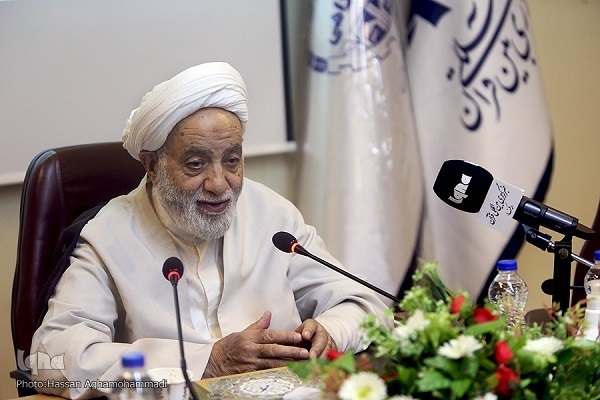Scholar Urges Simplicity, Accessibility in Quranic Sessions

Speaking at the opening of a Quranic festival for university students on Sunday, prominent Iranian Quran teacher Hojat-ol-Islam Mohsen Qara’ati emphasized that Quranic gatherings should be welcoming and uncomplicated to encourage broader participation.
He said Quran sessions should avoid unnecessary formality or length. “A Quran gathering shouldn’t last more than 20 minutes, and it should not involve any costs,” Qara’ati stressed. “Everyone should be allowed to read in their own voice; it doesn’t have to be perfect or professionally recited.”
Qara’ati, who has penned Noor Exegesis of the Quran, underscored the need for a deeper connection with the divine text. “We have not truly come to know the Quran. Perhaps it’s too late for that, and for this, we ask God for forgiveness,” he said. “But we are also grateful that at least we have started moving in the right direction.”
Watch:
He drew attention to the remarkable numerical patterns in the Quran. “The word ‘day’ (yawm) appears 365 times—equal to the number of days in a year. The word ‘month’ (shahr) is mentioned 12 times. The words ‘world’ (dunya) and ‘hereafter’ (akhira) are each repeated 115 times,” he noted.
On Quran memorization, Qara’ati advised caution. He pointed out that while some people are naturally gifted and can memorize easily, others may struggle. “There is a principle in the Quran—‘qawlan maysura’—which means [speak] in an easy and gentle way,” he said. “If memorizing the Quran causes undue stress, pain, or bitterness, then it is better not to pursue it that way.”
Read More:
He also referred to Quranic instructions on how to engage with the holy book. “The Quran encourages reading (‘faqra’oo’), recitation with rhythm (‘warattilil Qur’ana tartilan’), and deep reflection (‘yadabbaroon’),” he said.
4284404



